 The Mukerji and Guidon Labs gather to welcome and celebrate summer Neurology Youth Scholars Diara Canton (Worcester State '22) and Balwant-Amrit V. Singh (Emory '23), as well as Harvard-Amgen Scholar Christian Cepeda (Stanford '22), with a barbecue at Dr. Guidon's house.
The Mukerji and Guidon Labs gather to welcome and celebrate summer Neurology Youth Scholars Diara Canton (Worcester State '22) and Balwant-Amrit V. Singh (Emory '23), as well as Harvard-Amgen Scholar Christian Cepeda (Stanford '22), with a barbecue at Dr. Guidon's house.
Learn more about the Youth Neurology Education & Research Program.
Lab Values
The philosophy of our research group is that we achieve research and clinical excellence through collaboration and every individual member of the team brings value. We hope to create a collaborative environment in which every member is unhampered to achieve their potential. We believe diversity of thought, informed by various experiences, benefits achieving creative solutions for people with HIV and neuro-infectious diseases. This means that we benefit from the input of all lab members, we celebrate diverse backgrounds, and we respect ourselves, research participants, patients, and each other. It is our mutual respect and the integrity of our work that is the consistent thread for the lab culture, values, and policies.
Collegiality and Inclusiveness
It is our collective responsibility to cultivate a collegial, kind, and accessible atmosphere in which each of us can learn and grow. We welcome one another and are proactive in opening discussions or offering assistance.
Patience
Be kind and generous when someone asks you a question or for help, even if the answer seems obvious to you. Understand that your reactions can impact somebody’s self-esteem, confidence, and willingness to ask for help again. From this recognition and appreciation for our diversity of scientific and personal backgrounds, we all draw grace and patience for working through misunderstandings. Everyone in the lab is trying to do their best in science and help one another as much as possible.
Asking for, receiving, and giving help
If you are struggling, ask another lab member (with experience in this area). Reinventing the wheel is not necessary. Consider other lab members and rely on our network of collaborators who may have skills. We can all be mentors and learning how to mentor takes patience and time. Aiding and commenting helps other grow into their roles.
Fellowship and commiseration
We never forget to celebrate one another’s achievements, and we share all achievements across the lab. We all will be excited with and for you! When we have a disappointing result or receive a “rejection” on an application or manuscript, remember we have all been through those experiences and understand what you’re feeling. We can use each other to be a source of empathy and advice.
Onboarding New Members & Mentorship
In addition to Onboarding materials available to all lab members in our lab Dropbox account, new lab members will be assigned a peer mentor. This peer will help to ensure newer members feel welcome. The role of the peer mentor includes but is not limited to: introducing the new member to the lab, collaborators, and colleagues of the lab, providing guidance on how, what, where, and who of the lab, and being aware of policies and culture documents. Mentors are also contacts for lab social invitations and general lab knowledge and answer questions related to culture, conduct, and protocols. All members can be a mentor. A thriving and sustainable lab culture can be maintained only when lab members are equally open, intellectually curious and willing to learn from each other. This includes members shadowing you, discussing challenging data, and helping as a team. Showing kindness and gratitude to those around you is often repaid unexpectedly. Alternatively, treating others without respect is behavior that is not acceptable, passes on unhealthy habits and norms, and creates a culture that is not conducive to collaborative science.
Peer mentors
Recognize that newer members are particularly vulnerable, have unique backgrounds, and may not feel empowered to ask questions. When providing advice, consider the framework of how we can improve processes to make the experiment, project, or lab better. Gauge your feedback and consider mentorship as the opportunity to learn from another person with a different background or field expertise.
Mentees
We recognize that all of us are mentees at some point and should remain a mentee for life. Members of labs and academic organizations can be vulnerable to the imposter phenomenon, feeling overwhelmed and unsure. We expect all members to ask for help. We also encourage each person to think about the people who have been mentors in the past (e.g., teachers, parents, advisors, counselors, etc.) and discuss how they should be a continued source of advice as you take on a new role. Building upon this foundation and adding to the network of advisors is part of your training. Specific areas in the lab with whom you should seek advice include (e.g., manuscript writing, grant-writing, data visualization, presentations, professional development, etc.).
Relationships and conflict
If you dread discord, it can be natural to avoid or delay a difficult conversation. While we can all learn to dive into difficult conversations by reframing thoughts, beginning from a place of curiosity and respect, this is a learned skill set. If relations have become strained, the well-being of either party is diminished, or professional activities are no longer able to occur, it is important to let me know and not delay. It may be impossible to resolve conflicts without mediation. Alternative advice outside of the lab are also encouraged.
Resources:
Mental & Physical Wellbeing
Harvard Medical School and Mass General Brigham can be stressful environments with high expectations. Imposter phenomenon can permeate. Your growth, development, and love for neuro-infectious diseases are paramount, and the Mukerji lab should be where people want to work. Looking out for your colleagues' wellbeing is necessary, and recognizing when you need help is important. Being a thoughtful collaborator in science is part of your development and starts with ensuring internal wellbeing. Making space for your mental and physical well-being can be challenging. We have all prioritized other action items before personal well-being. If you are concerned you may be sick, let lab mates and I know, and stay home. Look for alternative uses of time, and strategize with me about backup plans early in the development phases of projects so we have Plan B in place.
Resources at Mass General Brigham and available as an employee for free or at a discount:
- Employee Assistance Program
- Office of Well-Being (faculty, postdocs & graduate students)
- Headspace
- The SilverCloud iCBT Program for MGB Employees: Employees, IHP students and household members can access this program via a mobile device or desktop computer. You can be referred by your PCP or the EAP or you can self-refer
- Koa Foundations
Free resources outside of Mass General Brigham:
- Shame in Medicine: The Lost Forest: 10-part documentary series produced by the Nocturnists podcast
Resources lab members used and found helpful that may not be freely available:
- Ten Percent Happier: Meditation
- Pure Barre Assembly Row
- The Trustees of Reservation: Places to go and visit
Scientific Integrity
Reproducibility is imperative to good science and can impact the lab’s credibility if results are called into question. New protocols or updates to existing protocols/standard operating procedures should be in the Protocols folder on lab Dropbox and overseen and organized by the Lab Manager to be named. Your protocols should include small, specific details that have an important impact on outcome (e.g., order of reagent, type of reagent and company, parameters that need to be controlled). If a protocol can be recorded via video, we will provide recording devices to allow you to document procedures. To promote visibility within the group, at the end of group meeting presentations, include a slide on the protocols used and where they are located in Dropbox.
Responsible Conduct of Research (RCR)
We require new students and lab members to train in responsible conduct of research. For those on developmental awards or receiving support on an NIH or NSF grant, RCR training is mandatory. Training includes a four-hour MGB RCR seminar, four hospital-based RCR courses and completing CITI online RCR course. The NIH also requires individuals with three or more years of NIH training or career award support to complete additional RCR training. This requirement can be fulfilled online by completing three modules (Collaborative Research, Peer Review, and Research Misconduct) of the CITI Program RCR refresher course. For all individuals in the lab working on clinical trials, we require additional CITI certification for Good Clinical Practice and will keep your certification in our regulatory folders.
Data management
There are many reasons to prioritize managing data, including increasing your research impact, saving time, preserving your work and ideas, maintaining data and scientific integrity, meeting funder requirements, sharing data and promoting discoveries, and supporting open access. You can find Data Management Plans on the Mukerji lab Dropbox account, including how to detail lab notebooks, save code and organize data. Develop a file system early and keep raw data files (never saving over files!).
Resources for guides on data management:
Reporting
All results are important and negative results may save time and resources for lab members and also be crucial for redefining hypotheses. All results are included in detailed notes, and codes.
Data manipulation and academic misconduct
Data manipulation will not be tolerated and may ultimately result in reporting the violation to MGH Research Compliance. The MGH Research Compliance Office policy outlines the steps needed when there is concern regarding academic misconduct, including plagiarism and malicious data interference. If you are concerned regarding your presentation and data interpretation, solicit input from myself and lab members. We use programs like iThenticate when publishing which are available to MGH researchers.
Resources:
- Mass General Brigham Research Compliance Office
- Mass General Library Guides: Plagiarism
- The Collaborative Institutional Training Initiative (CITI Program)
Please see the MGH Research Compliance Policy (PDF) for complete details.
Manuscripts & Authorship
Writing and publishing papers are the most important way we disseminate work to other researchers and the public. Since papers are important for applying to medical or graduate school or fellowships, academic positions, or putting yourself on the job market, plan carefully and discuss your timing and strategy with me. You can find the Crafting Manuscript instructions on the Mukerji lab Dropbox account, including project proposal forms and responsibility acknowledgments. There are a few things to keep in mind:
Outline early and often
Begin to visualize the contents and concepts for your paper as early as possible in a project. As soon as you begin a new line of investigation, generate research outlines to predict and guide your future research activity, and list our resources, including the people needed to succeed. Of course, outlining early will mean that you will need to be flexible and open to major revisions as your message evolves. Pay attention and be mindful of opportunities to adapt and streamline your outlines and projects, for example, new technology or ideas generated by lab members and collaborators.
Normalize conversations about authorship
It can be difficult sometimes to define the threshold between generally giving assistance and making an intellectual contribution to a project or paper. We want to normalize early and open conversations about authorship in the lab. If someone is advising or helping with a project, it is important to discuss what contributions would be expected from a co-author. We have adopted a “Manuscript Responsibility Log” generated by one of our collaborators which is located on the lab Dropbox account. We strongly encourage this log to be discussed before manuscript generation, co-authors acknowledge and sign to be aware of their responsibilities, and reviewed regularly. For samples of credit, we have used CRediT Taxonomy.
Conferences
Developing a professional network is an essential part of your training, regardless of your career path, so it is expected that each lab member will attend conferences or professional society meetings. Which conference(s) you would like to aim for should be discussed and strategized with me; in cases where you have an interest in multiple meetings, I may ask you to prioritize key ones to disseminate your work and advance your professional development. As you prepare an abstract and conference application, be aware that we use data from publicly funded repositories that have strict guidelines on how to submit an abstract for internal review, a process that may require weeks of advance notice. Also, many submissions are publicly shared and may affect where you can later submit a manuscript on the presented data. You will need to plan for any submitted abstracts to be reviewed by all coauthors, ideally providing them at least two weeks for review. It is highly encouraged that you ask colleagues to watch your practice and lend advice or tips for refining the presentation. Conferences can be overwhelming, but many senior attendees in our field enjoy meeting people interested in neurology and infectious diseases. Preparing a list of attendees, you wish to meet in advance of a meeting should stimulate your intellectual curiosity and generate opportunities for future collaborations. Finally, you are a representative of the lab and your behavior should reflect the positivity, decorum, and interpersonal respect with which we operate.
Productivity and Letters of Recommendations
Productivity and working together to execute projects are more valuable metrics than face-time hours in the lab or desk. There are different roles in the labs and disciplines within our lab and among collaborators, all with each metric. I will judge your time in the lab by what you learned, how you grew, and how you contributed to research and the environment. In lab meetings, we will discuss how we can all improve workflows. When you start, we should plan to have regular one-to-one sessions strategizing ways we can both improve and metrics.
Letters of recommendation are common requests for medical school, graduate school or mentored grants. As soon as you identify a need for a letter, speak with me and then follow up with the details by email, ideally 2-3 weeks in advance, so that I can block sufficient time. Helpful items include your resume or biosketch, description of the award, job or school program, submission details, and the deadline. You may want to list the three things you are most proud of or what you would like me to address specifically in my letter.
Helpful websites for how to ask and write letters of recommendation:
Helpful tools to create curriculum vitae (CV) or biosketches:
Note: if you have helpful websites or tools for trainees, please email brainID@partners.org.
Our Core Team
Principal Investigator
Dr. Shibani S. Mukerji is the Associate Director of the Neuroinfectious Diseases Unit of the Division of Neuroimmunology and Neuroinfectious Diseases at Mass General and Assistant Professor of Neurology at Harvard Medical School. She is an MD and PhD graduate of Case Western Reserve School of Medicine, and completed a postdoctoral fellowship in Dr. Dana Gabuzda lab at the Dana Farber Cancer Center. Dr. Mukerji received specialized clinical training in the neurological management of infectious diseases from the Mass General Brigham/Harvard Medical School residency and fellowship programs and sees patients with HIV infection in the MGH Neurology Department and the Division of Infectious Diseases. She is a co-investigator on the Phase II clinical trial “A Study of the Gut Barrier and Blood Vessel Inflammation in Individuals With and Without HIV” and PI of the MGH Prospective Encephalitis and Meningitis Study (PEMS), a clinical research platform that combines patient data with biofluids to improve detection of acute neurological infections. Dr. Mukerji grew up in Phoenix and enjoys spending time biking and traveling with her husband and daughter.
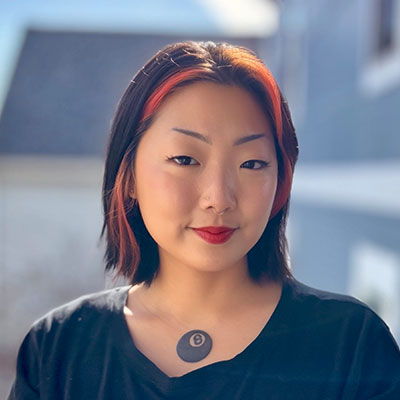 Hemi Park, MPH, BS
Hemi Park, MPH, BS
Clinical Research Program/Project Manager
Hemi oversees the operational and regulatory aspects of an ongoing phase II clinical trial (SOOTHE Trial). She completed her Master of Public Health in Epidemiology at Temple University. Before joining the Mukerji Lab in January 2023, she worked on projects aimed at reducing health disparities and promoting health equity, focusing on social determinants of health, sexually transmitted infections in young adults, and healthcare access in Asian American immigrants. She is from Philadelphia, PA and enjoys spending time in coffee shops and biking.
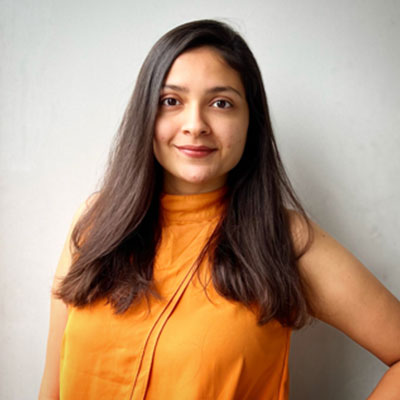 Meghal Samir Desai, MPH, BDS
Meghal Samir Desai, MPH, BDS
Clinical Research Coordinator
Meghal Desai joined the Mukerji Lab as a Clinical Research Coordinator for the SOOTHE Trial in March 2024. She holds a Master’s in Public Health from the University of Miami. Previously, Meghal served as a Graduate Research Assistant at the University of Miami, where she contributed to projects on topics such as first health responders, cannabis users, and e-cigarette users. She also interned at the start-up company Surgo, where she played a key role in an extensive literature review for Surgo’s tool "Mosaic," which provides sociobehavioral data to pharmaceutical companies. Originally a dentist from India, Meghal aims to pursue a career in dentistry in the United States. In her free time, she enjoys reading, hiking, and traveling.
 Malachi Keo, BA
Malachi Keo, BA
Clinical Research Coordinator
Since Fall 2023, Malachi has been the coordinator for studies evaluating portable MRI technology (POCKET-MRI PWH study) and the analysis of HIV-1 proviral DNA within the CNS through autopsy tissue donation (BEACON study). His interests include HIV-associated neurocognitive disorder (HAND) and addressing structural barriers to care. He is involved in developing medical education for LGBTQ+ youth through qualitative research at Harvard Medical School, and advocacy to improve national mental health. Malachi graduated from UC Berkeley with BA degrees in Molecular & Cell Biology and Psychology. In his free time, he’s in search of spicy Cambodian food, true crime podcasts, and mastery of the Spanish language. He plans to attend medical school.
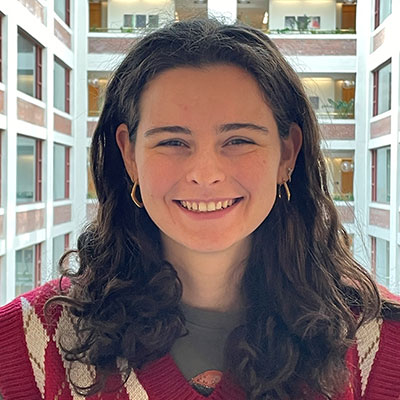 Daire Daly, BS
Daire Daly, BS
Research Technician
Daire joined the Mukerji lab as a Research Technician in February 2024. Before joining the lab, Daire worked in the CRM Flow Cytometry core at Massachusetts General Hospital, where she became familiar with the technique of Flow Cytometry. Daire graduated from Worcester Polytechnic Institute in 2021 with a degree in Bioinformatics, where she completed a project working to create a model for pathogenic yeast within the gut microbiome. In the Mukerji lab she is working to analyze the impact of pregnenolone on blood biomarkers in people with HIV. She is from Sharon, MA and in her free time she enjoys triathlons, hiking, skiing, and generally spending time outdoors.
Research Fellows
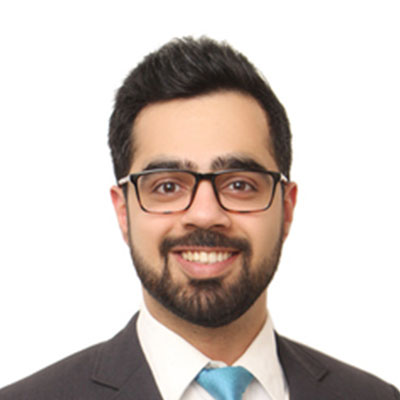 Karan Singh, MBBS
Karan Singh, MBBS
Postdoc Fellow
Karan Singh joined the Mukerji Lab at Massachusetts General Hospital as a postdoctoral research fellow in 2024. He earned his MBBS degree from Dayanand Medical College and Hospital in India and previously worked as a Resident Medical Officer at Healing Hospital in Chandigarh, India. Karan is committed to a career in neurology, aiming to merge his clinical skills with his research experience to enhance treatment options for patients with neurological infections. He is actively involved in several projects at the lab, including studies on West Nile Virus and Powassan Virus. Outside of his professional endeavors, Karan enjoys exploring nature, attending photography workshops, and engaging in community health initiatives.
 Gizem Agtas, MD
Gizem Agtas, MD
Postdoc Fellow
Gizem joined the lab as postdoctoral research fellow in March 2025 and is an active member of the clinical team for the SOOTHE trial. She holds an MD from Istanbul University Faculty of Medicine. She has experience in biomarker research, as well as clinical experience in Turkey and the US healthcare settings. Her research interests are neurocognitive disorders with a particular interest in understanding its underlying neuropathological mechanisms through the perspectives of neuroimmunology and biomarker discovery. Her goal is to become a neurologist, where she hopes to integrate her research insights into patient care.
Outside the lab, she volunteers for high school robotics events and she enjoys an active lifestyle. She loves swimming, hiking, and playing table tennis, and is always up for exploring new cuisines.
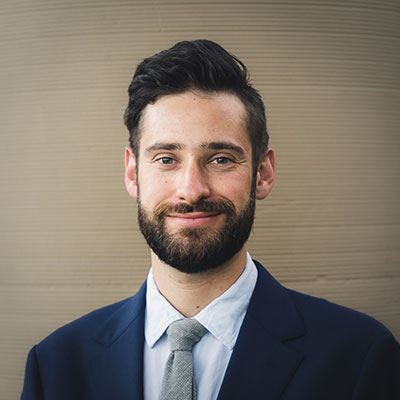 Carson Quinn, MD
Carson Quinn, MD
Resident Physician
Carson is a senior resident in the Mass General Brigham / Harvard Medical School Neurology Residency program, with a clinical focus on infectious diseases of the nervous system. He graduated from UC San Francisco Medical School where he was awarded a global health research fellowship to perform clinical research on HIV-associated meningitis in Kampala, Uganda. There he specifically focused on diagnosis of and cognitive outcomes after TB Meningitis. Carson joined the Mukerji Lab in 2023 and is currently spearheading projects on diagnostic testing for neuroinvasive West Nile Virus infections. He is also a co-investigator on the SOOTHE trial. He also has a strong commitment to medical education and mentorship. After residency, Carson will be a fellow in the Mass General Advanced General Autoimmune and Infectious Neurology Fellowship. He will use this subspecialty expertise to further a career in clinical care, education, and clinical research in infectious and inflammatory neurologic diseases.
Resident Physician
Doug works in the Mukerji Lab as a Resident Physician in the Harvard BWH-MGH Neurology Program. He completed both his MD and PhD from Northwestern University, where he worked with Dr. Richard Longnecker on the pathogenesis of Herpes Simplex Virus Encephalitis.
Doug also works with Dr. Chenghua Gu at Harvard Medical School on the immune response to pathogens at the blood-brain barrier. In the Mukerji lab, his focus is on the pathogenesis of acute viral encephalitis, including Eastern Equine Encephalitis (EEE) and Herpes Simplex Encephalitis (HSE). Doug grew up in Durham, New Hampshire and enjoys hiking and traveling.
Undergraduate/Medical Students
Nikita Saha
Northeastern Co-op Student
Nikita joined the Mukerji lab in July 2024 as a part of the co-op program at Northeastern University. She supports clinical trial recruitment for the SOOTHE Trial. She is in her last year of pursuing her undergraduate degree in Biology with a minor in Public Health on the pre-medical track. She is from Matawan, New Jersey, and has previously worked as a wet lab intern researching the role of the gut microbiome in ulcerative colitis and IBD. Last year, she started working as an Emergency Department Technician at MGH and continues to work there part-time. She is currently leading recruitment and outreach for the SOOTHE Clinical Trial. In her free time, she enjoys exploring Boston, going to the gym, and baking!

MGH Neurology clinicians, researchers, and staff at the 2019 McCourt Foundation’s Boston Waterfront 5K, an effort to fundraise for neurology research.
Alumni
Clinical Reasearch Coordinators
Clinical Research Fellows

Katherine Holroyd

Navid Valizadeh

Haitham Alabsi
Arjun Singh
Data Scientist

Elissa Ye
Summer Undergraduate and Medical Students

Amita Bose

Livia Brennan
Diara Canton
Support Us
Your donations help to elicit the greatest potential from the department’s superb team and fuel the research that will result in better treatment and ultimately, cures for neurological disorders.





 Michael Leone
Michael Leone Emily Rudmann
Emily Rudmann